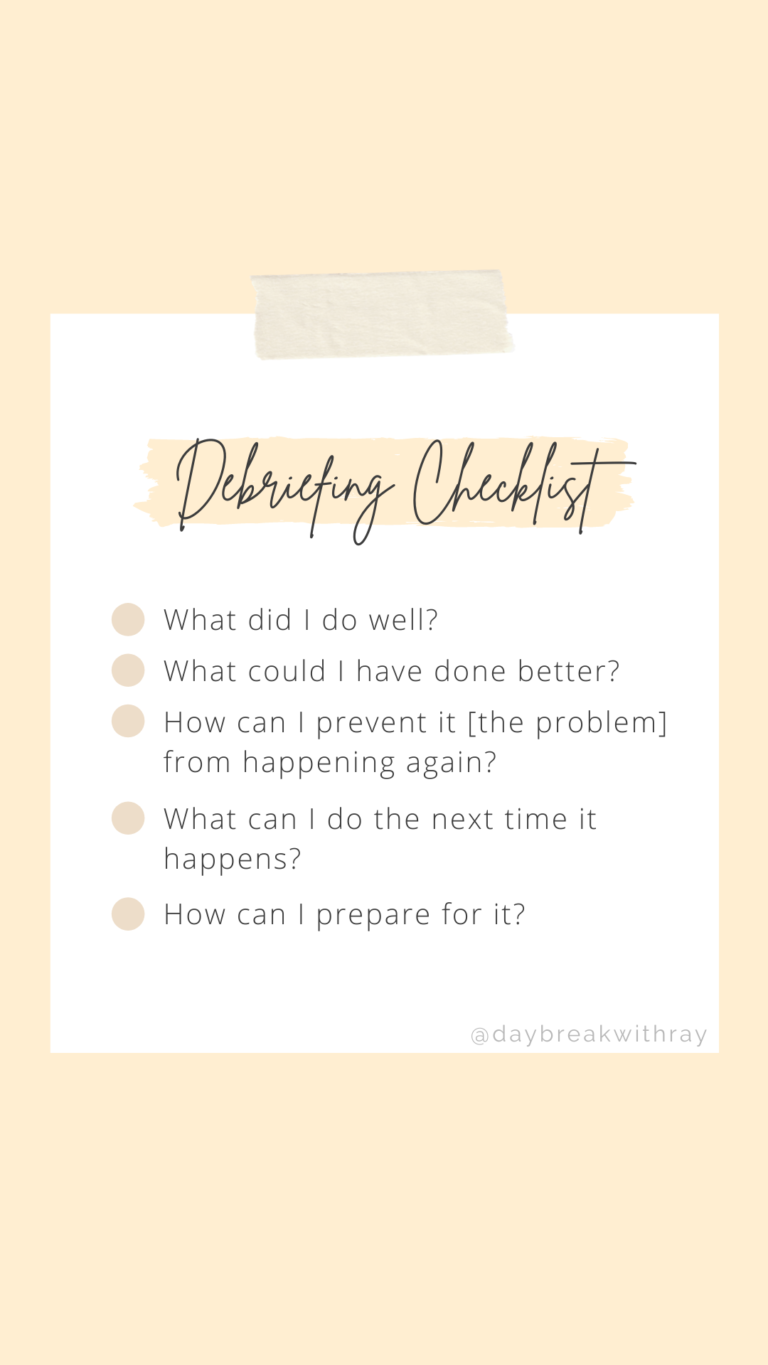What You Don’t Know About Debriefing Can Hurt You

If you feel like it’s a waste of time to hold a debrief meeting, then you’re missing out! Are you making no improvements after a debriefing? You’re probably doing it wrong. Debriefing done right can give you more benefits than drawbacks.
What is Debriefing?
Debriefing is when you question yourself and others about the thought process and any actions taken during a past event or a completed mission. The goal of debriefing is to discuss and exchange feedback on those actions and thoughts. After the reflection, you are encouraged to incorporate any improvements or ideas into future events if they were to happen again.
1. Understand what we can improve on
Debriefing isn’t only about sharing what went well. Of course, if things ran smoothly, you should keep it up. But there must be a fair share of things that DIDN’T go well. And that’s where you can make the biggest improvement with minimal effort. Consider the 80/20 rule.
The 80/20 rule (Pareto Principle)
Prioritize 20% of your efforts to produce 80% of the best results.
Don’t spend 80% of your effort trying to perfect something that’s running smoothly already. At most, you will only achieve 20% better results. Instead, focus 20% of your effort on the area that isn’t doing so well. Naturally, you’ll produce 80% of the best results because there is so much room for improvement to make the results visible.
2. Exchange information on mistakes or failures
This is probably the toughest part about debriefing yet, also the most crucial part for it to succeed. After all, nobody likes to admit their failures. Deep down, we’re afraid of the way people will look at us or judge us. Sometimes we can even get defensive when talking about our failures.
That’s why it’s extremely important to ensure that all comments are neutral rather than pointing fingers and making everyone uncomfortable. Remember, it’s not you against your colleague. It’s you and your colleague against the problem. You’re a team.
If you screwed up, your job is to show the lessons you’ve learned. Nobody learns from someone who is being defensive.
Make the meeting a comfortable environment to share mistakes and failures. The key is to learn from it. So, share the lesson with others so the same mistake won’t happen again, on yourself or others. Without the exchange of information, a debrief meeting is just a meeting, without the debrief.
3. Brainstorm together to find better solutions
We always come up with the best solutions after the situation has been taken care of. Sometimes, it may even lead to regret because we know we could’ve handled it better. Just remember, we always try to make decisions that, at that very moment, we believe are the best that we can make. So don’t blame yourself too much. Instead, take this opportunity to brainstorm an even better solution for the future. Don’t forget two heads are better than one!
No debrief is complete without marking it down. Holding a debrief meeting is a great way to keep everyone there on the same page, but how about those who didn’t join the debriefing? They’re going to miss out. Preparing a document can help those who didn’t attend to keep up with the problems and solutions and help those who did, refresh their memory.
To Sum Up
If there’s no debriefing, there’s no improvement. If there’s no discussion, then you’re likely to face the same mistakes again. And if there’s no checklist, it’s just a waste of everyone’s time. Most importantly, mark it down so those who follow can avoid making the same mistakes again.

Are you feeling stressed from remote work? If so, then it's time to redraw the boundaries between wo
By utilizing these four methods, you can motivate yourself to achieve better results. Let's stay mot
What skills or secret talents do you consider as 'cool'? For me, being able to play Beat Saber on Ex




